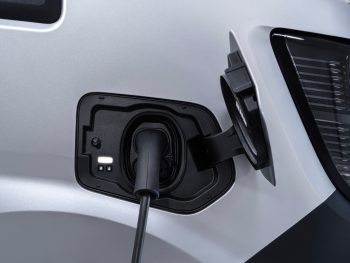Just 2% of combustion vans scrapped under the London ULEZ scrappage scheme have been switched to electric vehicles so far, despite millions of pounds of funding being put aside.

Transport for London (TfL) data reveals that of the 16,579 approved applications to scrap a petrol or diesel van between January 2023 to May 2024, only 372 were replaced with an electric vehicle.
The figures are spotlighted in new analysis from campaign group Clean Cities, which is calling for more support to aid the eLCV shift.
Launched in 2023 ahead of the ULEZ expansion, the scrappage scheme provides grant payments to scrap, donate or retrofit vehicles that do not meet the emissions standards and switch to cleaner modes of transport.
The analysis lands at the same time as new figures from the Transport & Environment clean transport group shows that a million more diesel vans are being driven on UK roads than 10 years ago, worsening air pollution.
Research by T&E shows carbon emissions from vans in the UK have risen 63% since 1990, threatening climate targets despite the growing push for electric vehicle adoption. Carbon emissions from private cars and taxis have decreased by 19 percent over the same period.
The majority of new van sales are diesel, accounting for more than 90% of all new van sales in 2023 and a similar proportion for last month.
This is reflected in harmful nitrous oxide emission levels in the UK. Emissions from HGVs and cars have fallen by 91% and 88% respectively since 1990 but vans have only managed a fall of 38%.
Recent polling, commissioned by Clean Cities, has revealed 67% of Londoners believe small businesses still need more support to help them switch to electric vehicles.
The survey of 4,000 UK adults also finds that three-in-five (59%) Londoners want their councils to take stronger action against air pollution and protect the environment. Nearly half (46%) also believe delivery vehicles have a negative impact on their local roads.
As part of its campaign for policy change, Clean Cities is launching Clean Cargo Capital, an initiative focused on accelerating the uptake of electric or pedal-powered commercial vehicles in London.
The campaign calls on Mayor Sadiq Khan to improve incentives for businesses to switch to electric vehicles, such as reviewing and reprioritising the ULEZ scrappage fund and extending the Congestion Charge Cleaner Vehicle Discount for SMEs, ride-hailing, and car-sharing services until late 2027.
The discount is currently set to be discontinued at the end of 2025, meaning it will cost businesses the same to drive a diesel or electric vehicle in central London, despite electric van sales lagging and diesel being one of the largest contributors to air pollution in this area.
Oliver Lord, UK head of Clean Cities, said: “The Mayor’s van scrappage scheme is a leading endeavour but something isn’t right if only 2% of businesses in London have ditched diesel and switched to electric instead. Londoners rightly expect businesses to step up and play their part in cleaning the air and protecting the environment but more support is needed to make cleaner electric vans a viable option.
“Our polling shows a majority of Londoners believe small businesses should have more support to help them switch to electric vehicles, so it’s puzzling that the Mayor is set to remove the Congestion Charge discount next year.
A newly elected Mayor and a new government offers a unique opportunity to double down and deliver the regulatory certainty, incentives and infrastructure that businesses need so that electric vans become the norm and not a nice to have.”
Ralph Palmer, UK electric vehicle and fleets officer at Transport and Environment, added: “It’s clear that more action is needed to boost electric van demand among fleets to ensure we achieve the triple-win of tackling emissions, reducing running costs for small businesses and boosting energy security. The new Government should bring forward plans for stronger financial support and action to improve the nation’s charging infrastructure for van drivers to ensure the UK doesn’t continue to fall behind other European countries.”

